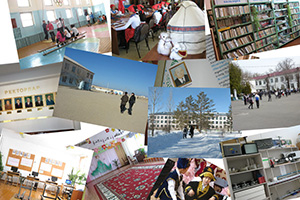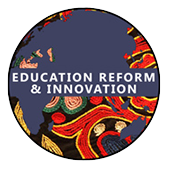Educational reform and internationalisation: the case of Kazakhstan
Our research arose out of a partnership between the University of Cambridge Faculty of Education, University of Pennsylvania Graduate School of Education, and the Graduate School of Education at Nazarbayev University. The partnership works well since the focus of the University of Pennsylvania Graduate School of Education is on teaching and research in higher education while ours is on school level education.
Project duration: March 2012 to present
Funder: This research was supported in part by Nazarbayev University with funds from the Kazakhstan Ministry of Education and Science.
The context, purposes and focus of the research
The context for the research is a major programme of educational reform in Kazakhstan aimed at schools. This programme includes:
- the extension of the period of schooling to 12 years;
- the development of a new curriculum and reform of the structure of assessment;
- the implementation of a trilingual policy in schools;
- the development of a new raft of selective schools for talented and gifted children, the Nazarbayev Intellectual Schools with innovative curricula and assessment;
- the ‘translation’ of experience from these schools to mainstream schools;
- a major programme of in-service education of teachers under the ‘Center of Excellence’;
- the beginnings of reform of teacher education;
- improvements in the selection of students for higher education and in their successful transition between school and higher education.
Collaborative research in 2012
 In the first year of the collaborative research programme we sought to understand and to describe the story of educational reform in Kazakhstan since independence in 1991, the main drivers of this reform and the main elements of the contemporary reform agenda. We concentrated at that stage on evidence gathered from official documents and key figures at the centre of the reform process.
In the first year of the collaborative research programme we sought to understand and to describe the story of educational reform in Kazakhstan since independence in 1991, the main drivers of this reform and the main elements of the contemporary reform agenda. We concentrated at that stage on evidence gathered from official documents and key figures at the centre of the reform process.
Download here a short version of the 2012 report.
Collaborative research in 2013
In the second year of the research we sought to understand and to describe the way reform appeared from perspectives at the periphery of the system, including in particular, through the eyes of school directors, teachers and students in small rural schools and (to some extent) those in the local administrative system and in-service training institutions who were part of the process of ‘transmitting’ or ‘translating’ messages from the centre to the periphery.
The outcomes of this stage of the research are fully reported in our book, Educational Reform and Internationalisation: The Case of School Reform in Kazakhstan edited by David Bridges and published in September 2014 by Cambridge University Press.
Collaborative research in 2014
In the third year of the research we took a number of central themes to do with curriculum and educational reform and pursued these mainly at school level but also in the Rayun and Oblast offices in the Orleu and Pedagogic Institutes and, where appropriate, in the Ministry and official government documentation. These themes, on which we reported in 2014, were:
- Curriculum ‘Translation’ (the development of educational innovations in secondary schools);
- Structure of school assessment;
- Teacher professional identity;
- School leadership in a changing educational environment;
- School autonomy;
- School leavers’ transfer to higher education.
Download here a short version of the 2014 report.
Collaborative research in 2015
In 2015 we continued to investigate student assessment, with a special focus on its role in determining who enters higher education and who receives scholarships for this purpose. We were aware, however, of alarmingly high drop-out rates among students (especially students from rural areas) in their early experience in higher education, and we sought to understand what was happening and how universities might address the problem. Finally, we looked at the nature of pre-service teacher education and its fit with the changing curriculum and changing approaches to the professional preparation and development of teachers.
Download here a short version of the 2015 report.
Collaborative research in 2016
The research focus was on the introduction of the new curriculum and pedagogy into Grade 1 in the 30 pilot schools in Kazakhstan. The research was on two main areas - the curriculum and assessment. The research aims were: i) to examine the attitudes and perspectives of schoolteachers, school leaders and other stakeholders towards implementation of novel features in the primary education curriculum at mainstream schools in accordance with the State Compulsory Standards of Primary Education in Kazakhstan and, ii) to provide recommendations for the effective implementation of the new curriculum in the primary education sector in Kazakhstan; and iii) to analyse the current experience of implementing principles of formative assessment in the teaching-and-learning process at mainstream secondary schools in Kazakhstan; and iv) to provide recommendations for further development of the implementation of the formative assessment principles in mainstream secondary schools in Kazakhstan.
Download here an executive summary of the 2016 report.
Development of Strategic Directions for Education Reforms in Kazakhstan for 2015–2020
Project duration: February 2013 – November 2014
The goal of this research project was to conduct an overall diagnosis of education system of the Republic of Kazakhstan in order to identify its strengths and weaknesses and to define directions for further modernization at all levels. This project aimed to provide analytical support and development of specific recommendations for effective implementation of the State Program of Education Development in the Republic of Kazakhstan for 2011-2020, taking into account the best international practices.
Read More

